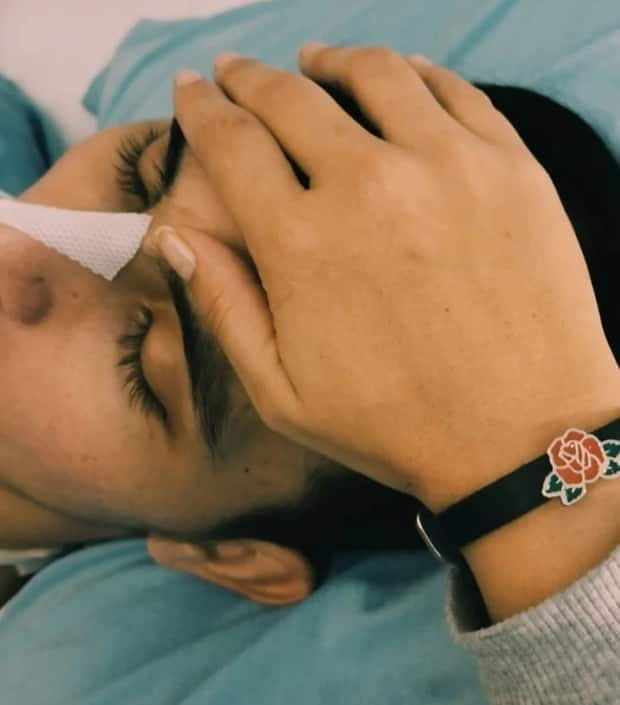Colombian student's dream of studying in Toronto turns into fight for survival after sudden stroke

Maicol Antonio Londoño Sastre arrived in Toronto from Colombia in October 2022, excited to start English courses with the hope of eventually attending college in the city.
By February, he was fighting for his life.
The 20-year-old, who goes by the last name Londoño, had suffered a hemorrhagic stroke — caused by bleeding in the brain — seen in only about 15 to 20 percent of stroke cases.
All the while, his family was over 4,400 kilometres away in Villavicencio in central Colombia, where his mother, Zulma Sastre, was stunned to learn what happened to her son.
"In the moment … I said, 'This is impossible.' I had been speaking to him all day," she said. "It is not easy news to overcome."
Now as he fights to recover, Londoño's family is urgently asking the community to help raise funds for his continued treatment for what's expected to be a long road. Receiving care in Toronto gives Londoño the best chance of returning to a normal life, they say.
Londoño was at a gathering with friends on Feb. 6 when he lost consciousness. He had been vomiting and feeling sick all day, according to his mother.
Londoño was diagnosed with a hemorrhagic stroke and taken to Toronto Western Hospital, where he was placed in a coma in the intensive care unit to prevent brain damage. After two brain surgeries and one surgery on his throat, doctors put him on life support, she said.
Medical bills exceed $300K, mother says
His mother told CBC Toronto she gave doctors medical authorization to operate on her son using a translator over the phone as she does not speak English.
Knowing that her son was in another country, completely alone, was incredibly challenging, said Sastre.
It was also surprising. Londoño was an "active guy" and that the first thing he did when he arrived in Canada was join a gym, his mother said. He dreamed of "making a life" in Canada, she said.
It took 10 days for Sastre to raise money and obtain a visa for herself and another relative to arrive in Toronto.
Now, after spending 22 days in an induced coma and also fighting off a serious virus he contracted a few days after being hospitalized, Londoño's condition is considered serious but no longer life-threatening,
But while he has some movement in his arms and limbs, he can't walk without support, and he can't speak or breathe on its own, his mother said.

The insurance he had prior to coming to Canada will only cover $65,000 of the over $330,000 in bills that have already accumulated, she told CBC Toronto. That's why she's created a GoFundMe page to ask for help covering the bills.
The family is hoping the money will cover part of the debt they owe to Toronto Western, and that they will also be able to transfer him to Scarborough Health Network, which has offered a plan for continued treatment.
In a statement to CBC Toronto, the University Health Network, of which Toronto General is a part, said the organization's finance department will work with uninsured patients on a payment schedule to recoup the cost of care on outstanding bills.
'Challenging' recovery ahead: doctor
Dr. Patrice Lindsay, the director of health systems at the Heart and Stroke Foundation of Canada, told CBC Toronto that a hemorrhagic stroke in someone as young as Maicol isn't common.
"There's no one answer to why somebody would have a hemorrhagic stroke, especially at a young age," she said. "More often it is caused by a congenital condition that was already there at birth."
A severe stroke like Maicol's requires 24-hour care, and the road to recovery will likely be uncertain and arduous, said Lindsay.
Signs of a stroke include droopy arms or facial weakness on one side of the body, and slurred speech.
"It's really important to call 911 … because every second counts," she said.


